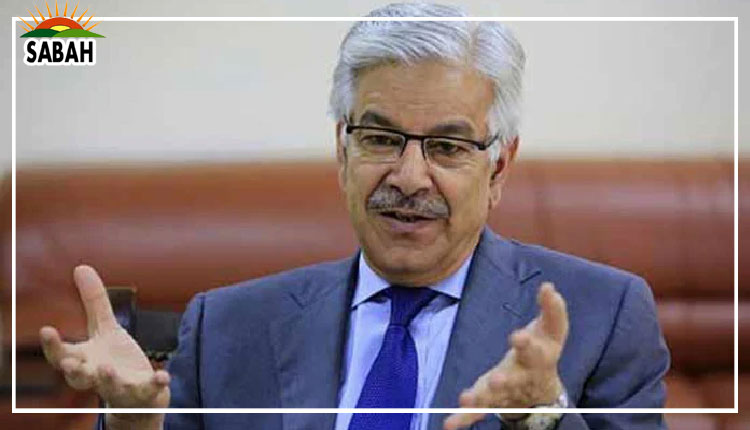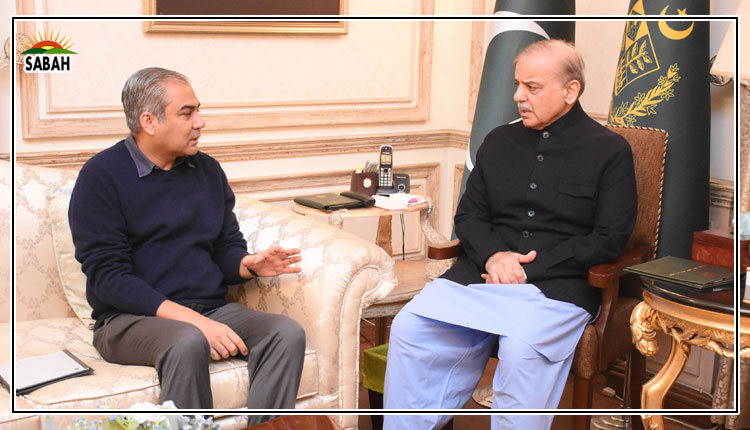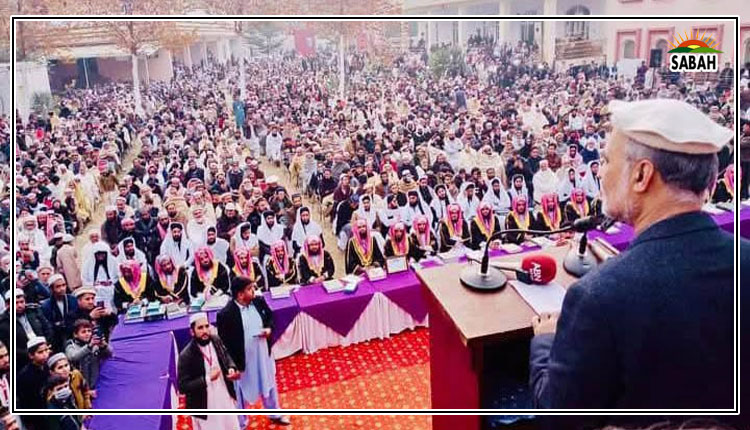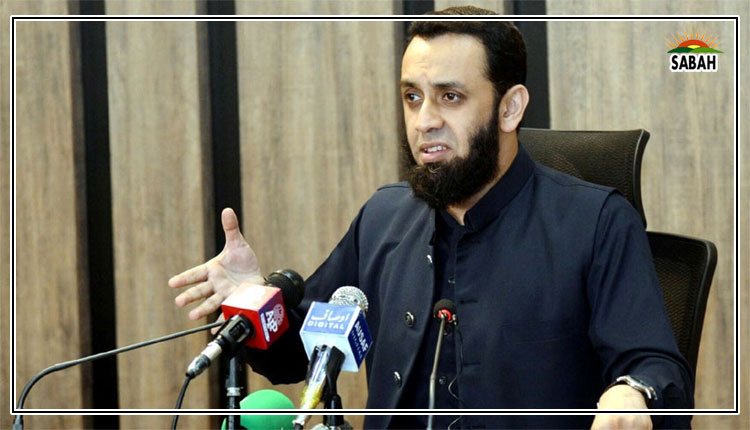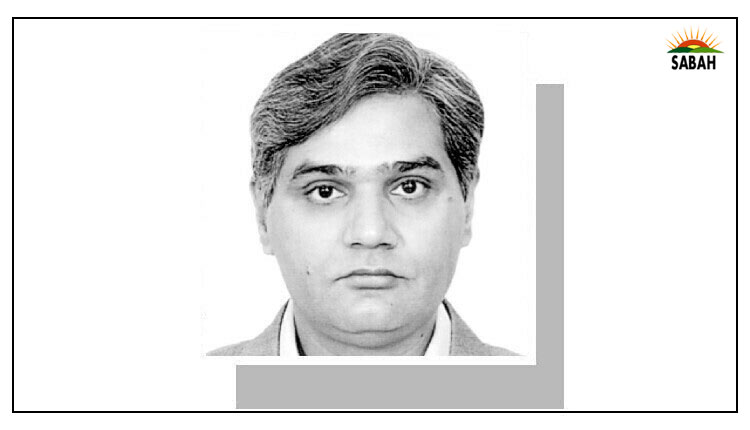Mainstream Pakistan … Muhammad Amir Rana
THE revelations from the Dubai leaks, detailing the expensive overseas properties owned by the country’s power elite, have not surprised the populace. Similarly, news of Pakistan’s total debt and liabilities reaching a record Rs81 trillion due to economic mismanagement has failed to shock. Instead, social media reflects a sense of bemusement over the Jammu Kashmir Joint Awami Action Committee’s (JAAC) success in achieving its demands. This disconnect highlights the differences in the priorities of the elites and the common people, which are exacerbating the nation’s sociopolitical crisis.
The juxtaposition of the contrasting news running on our TV screens is quite jarring. On one side, the federal finance minister is determined to eliminate tax exemptions for residents of the former Federally Administered Tribal Areas and Provincially Administered Tribal Areas in Khyber Pakhtunkhwa. On the other, it is disclosed in the Punjab Assembly that state-owned land is being leased for a mere Rs417 per month for gymkhana clubs in the province. Such reports seem to justify the public anger at the state, an example of which can be seen in viral social media clips of an official in Azad Kashmir being humiliated for using a government vehicle to transport his pet dog.
The JAAC’s demands have been met. The risk of its protests turning even more violent had increased following the killing of three protesters, and it seems the government was not ready to take that kind of risk. The presence of the International Monetary Fund (IMF) delegation in Islamabad seems to have contributed to the fulfilment of JAAC’s demands, as the group had bluntly expressed doubts about the capabilities of state institutions amidst the heightened political uncertainty and renewed social tensions. These reports of widespread social unrest from Azad Jammu and Kashmir must have added to the IMF’s anxieties.
The government acted out of panic, likely hoping to avoid derailing its talks with the IMF for another bailout programme over the sociopolitical unrest in Azad Kashmir. Prime Minister Shehbaz Sharif promptly approved a Rs23 billion ($82 million) subsidy programme to drastically reduce the price of wheat and flour, meeting a demand that the protesters had been raising for at least the last year. The JAAC had modelled its approach after the Awami Action Committee (AAC) of Gilgit-Baltistan, which has been active in ensuring the fulfilment of several local demands in recent years.
Earlier this year, the AAC had secured a similar deal with the government for a wheat subsidy. Initially reluctant, the government seems to have conceded in both cases due to the strategic and economic significance of both GB and Azad Kashmir, particularly with respect to the China-Pakistan Economic Corridor. These regions have historically benefited from tax and customs duty exemptions, widespread subsidies, and certain legal exemptions. There are many in Islamabad who have long voiced concerns that the exemptions given to the people of these areas have been draining Pakistan’s economy. While concessionary policies may have benefited the elites in these regions, ordinary citizens have continued to struggle, and they rightly attribute their plight to the power elite.
The people’s reaction to the government’s plans to introduce new taxation measures in former Fata and Pata is yet to be seen. It is uncertain how the government will react if mass movements akin to AAC and JAAC emerge: will it fold again in the face of adversity? The IMF’s primary concern is that state institutions do not have a strategy to address the socio-political crisis. They either resort to extreme and violent measures or complete surrender. Such measures damage the state’s ability to implement long-term structural reforms in the economic sector. The IMF assesses the government’s capacity to implement stringent economic measures in a volatile environment, noting that a weak government is less capable of handling such challenges.
The dilemma for state institutions lies in the fairness and constitutional validity of the public’s demands, which are organic and devoid of significant political ambitions. The JAAC and AAC represent anti-elite movements challenging the existing political order. These movements, unlike the Pashtun Tahaffuz Movement in KP and the Haq do Tehreek in Balochistan’s Makran region, have so far avoided ethnic and nationalistic undertones. However, this could change if the government fails to fulfil its commitments.
The government needs to navigate a delicate balance between satisfying the masses and meeting IMF requirements. The only sustainable solution is a comprehensive, long-term plan for socio-economic transformation — a task the power elite struggles to conceive, as it prefers firefighting and short-term crisis management. The populist movements discussed here have arisen mainly in peripheral regions, which are fighting for constitutional status or integration into the mainstream administrative system. For example, Gilgit-Baltistan has long demanded full provincial status, which was nearly achieved under Imran Khan’s government. But plans were inexplicably stalled and have not been discussed again. Even though the state was finally able to ‘mainstream’ Fata after 75 years, it remains an ongoing challenge exacerbated by the increased securitisation of the region in recent years. Perhaps, instead of clamping down more tightly on both Gilgit-Baltistan and Kashmir when populist movements broke out, the state should have learnt from its mistakes in Fata and taken a more considered approach.
Balochistan, Gilgit-Baltistan and Kashmir require mainstreaming in governance, economy and politics, and equal constitutional rights. Granting these rights could help legitimise and simplify the introduction of the tax reforms that the government envisages for these regions. However, the unstructured and unplanned handling of social transformation by change agents and the non-involvement of political parties, particularly ruling parties, has positioned them as adversaries to these movements.
For a smooth transition, the power elites must fundamentally alter their behaviour, demonstrating their commitment to the people and the state. They must prioritise loyalty to the land and its citizens over personal gains. Symbolic gestures alone are insufficient to justify holding properties and assets abroad.
The writer is a security analyst.
Courtesy Dawn, May 19th, 2024



